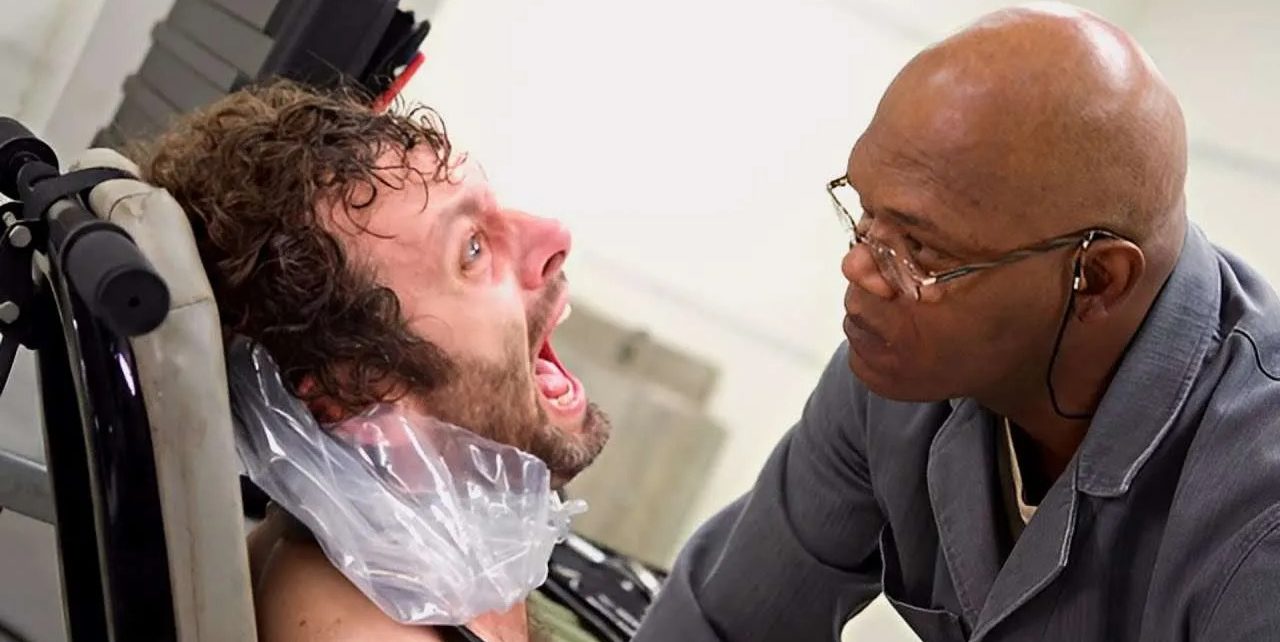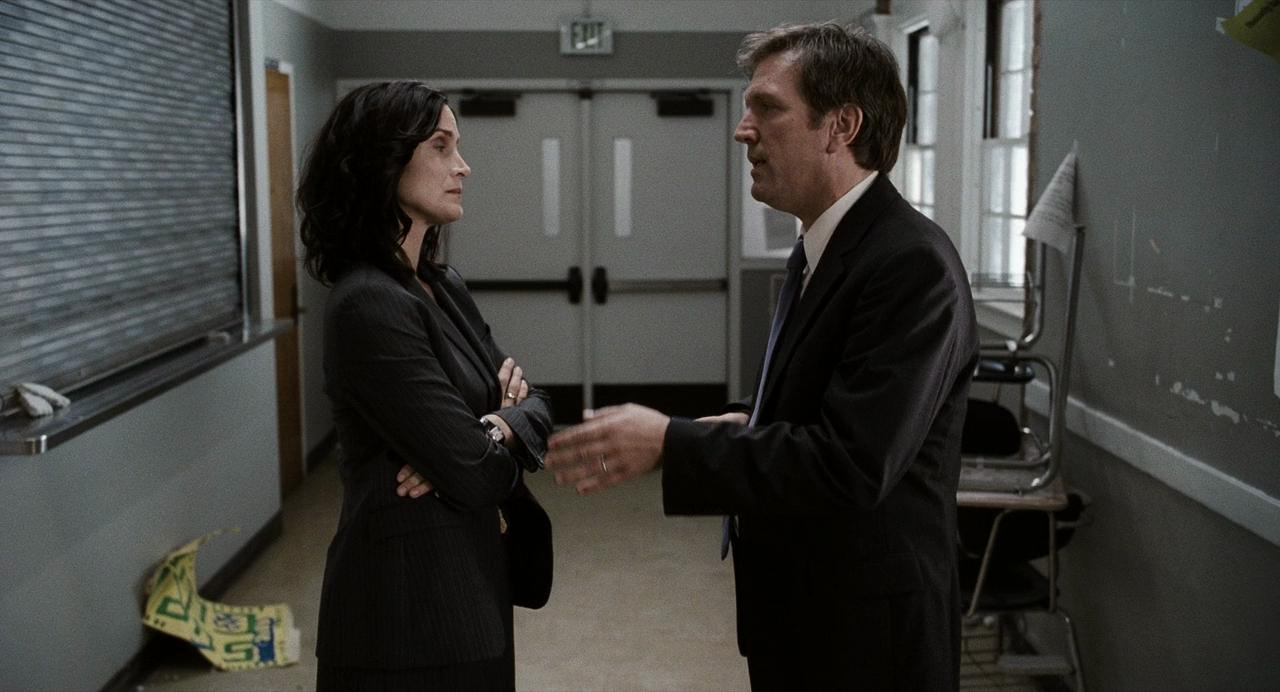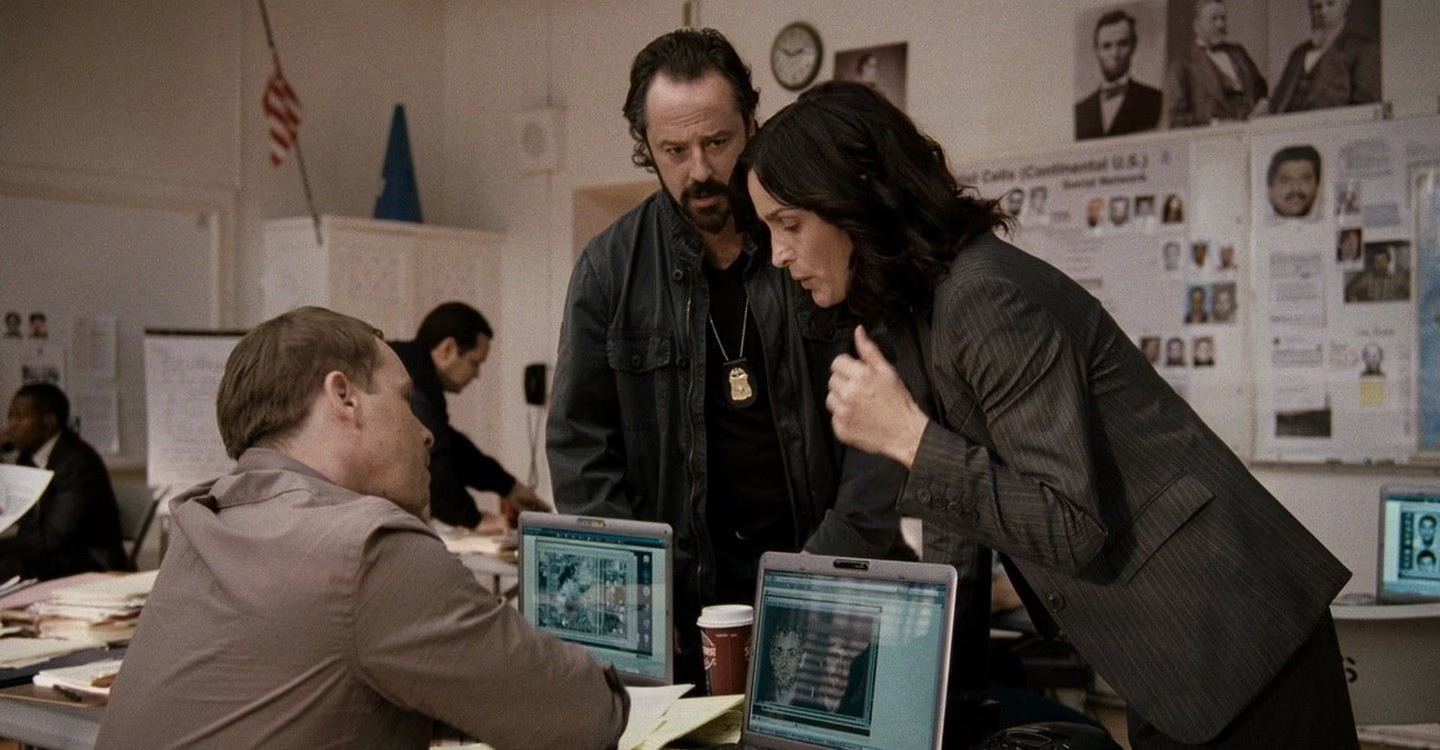In the 2010 thriller film ‘Unthinkable,’ the story begins on a rather somber note as a Delta Force veteran-turned-radical Muslim named Yusuf threatens to detonate three nuclear bombs placed in different parts of the country unless his demands are met. To prevent a catastrophic event, FBI Special Agent Helen Brody and another special interrogator named Henry Harold “H” Humphries are tasked with interrogating Yusuf to extract vital information and prevent the potential disaster.
As Yusuf remains steadfast in his refusal to disclose information despite mounting pressure, the interrogators face a moral dilemma. While H resorts to brutal physical torture without hesitation, Brody grapples with her conscience, torn between her duty to save her country and her ethical principles. Director Gregor Jordan uses the film to explore the moral complexities surrounding interrogation techniques in extreme situations, prompting viewers to question the justifiability of certain actions and wonder whether it is inspired by a true story.
The Real-World Issues Raised in Unthinkable
Though largely driven by a fictional story, ‘Unthinkable’ effectively creates a universe that draws parallels to real-life situations and historical events. The film’s believability stems from its ability to reflect on significant moments in the country’s history, such as debates over national security measures, the use of torture in interrogations, and the moral dilemma faced by those tasked with protecting the country from threats. Moreover, writer Peter Woodward hasn’t shied away from describing scenes that evoke discomfort, challenging viewers to question the ethical implications of the treatment Yusuf receives and whether it can be justified in the pursuit of the greater good.

The aftermath of 9/11 provides a significant backdrop for understanding the themes explored in “Unthinkable.” In the wake of the September 11 attacks, there was a substantial escalation in security measures across the United States, driven by the perceived need to prevent further terrorist acts. This period also saw heightened scrutiny and criticism directed towards US security services for their alleged use of torture methods in interrogations, particularly in the context of counterterrorism efforts.
The portrayal of harsh interrogation methods in the film, including physical torture, reflects the debates and controversies surrounding the use of enhanced interrogation techniques by authorities during this time. The moral ambiguity of these actions, as depicted in the thriller parallels the real-world dilemmas faced by officials grappling with how to extract vital information while upholding principles of human rights and due process. Yusuf’s demands for the immediate withdrawal of US forces and the dismantling of puppet governments in Muslim countries in the film reflect broader geopolitical issues and historical events in international politics involving the nation.
One can quote real-life examples of such instances, too. For example, the military intervention in Afghanistan, which began in 2001 in response to the 9/11 attacks and aimed at dismantling the Taliban regime and hunting down Al-Qaeda, resulted in a prolonged presence of American forces in the region. Critics have questioned the effectiveness of US nation-building efforts and the legitimacy of the Afghan government installed with American support. Similarly, following the US-led invasion of Iraq in 2003, there was significant controversy surrounding the presence of American forces in the country and the establishment of a new government.

Critics argued that the invasion was motivated by geopolitical interests rather than genuine concerns for democracy, and the subsequent insurgency fueled by various factions opposed to foreign intervention added complexity to the situation. The film not only boasts a riveting story crafted by its talented team but also infuses a sense of reality into its high-tension situations through the stellar performances of its cast. Samuel L. Jackson delivers a formidable performance as H, bringing intensity and gravitas to the character’s unyielding determination. Similarly, Carrie-Anne Moss shines as Brody, portraying a pragmatic and practical approach to the challenges they face.
The two characters work on opposite ends of the spectrum, giving viewers a chance to hear both sides of the dialogue objectively and arrive at their own conclusions. While the film undoubtedly takes creative liberties in its portrayal of the interactions between interrogators and Yusuf, its dramatization serves a larger purpose by prompting viewers to contemplate real-life questions about the balance between individual rights and collective security. It compels viewers to confront fundamental questions about the nature of justice and the role of the state in times of crisis. Ultimately, ‘Unthinkable’ catalyzes important conversations about the limits of state power and the moral imperative to uphold human rights in all circumstances.
Read More: Unthinkable: Where was Samuel L. Jackson’s Thriller Filmed?


You must be logged in to post a comment.